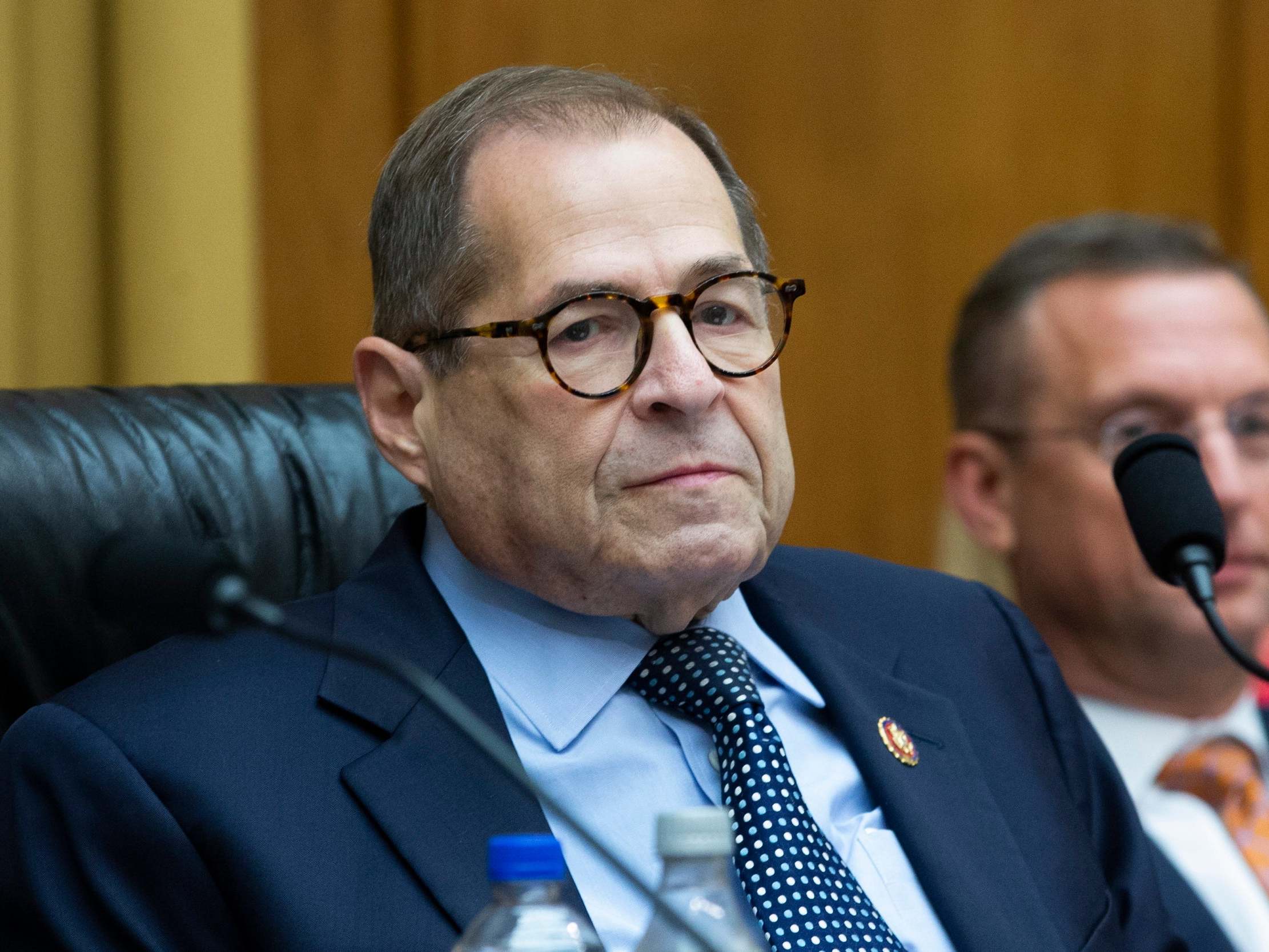Trump invited to participate in first House committee impeachment hearing 'or he can stop complaining'
Judiciary Chair Jerry Nadler hopes the president 'chooses to participate in the inquiry, directly or through counsel, as other presidents have done before him'

Your support helps us to tell the story
From reproductive rights to climate change to Big Tech, The Independent is on the ground when the story is developing. Whether it's investigating the financials of Elon Musk's pro-Trump PAC or producing our latest documentary, 'The A Word', which shines a light on the American women fighting for reproductive rights, we know how important it is to parse out the facts from the messaging.
At such a critical moment in US history, we need reporters on the ground. Your donation allows us to keep sending journalists to speak to both sides of the story.
The Independent is trusted by Americans across the entire political spectrum. And unlike many other quality news outlets, we choose not to lock Americans out of our reporting and analysis with paywalls. We believe quality journalism should be available to everyone, paid for by those who can afford it.
Your support makes all the difference.Donald Trump has been formally invited to an impeachment hearing at the House Judiciary Committee, scheduled for 4 December, when legal experts will determine whether the president’s alleged abuses of power in his handling of Ukraine and its military aid constitute “high crimes and misdemeanours” as established in the US constitution.
In his letter to the White House inviting the president and his attorneys to the hearing, committee chair Jerry Nadler promises a “fair and informative process”.
“At base, the president has a choice to make: He can take this opportunity to be represented in the impeachment hearings, or he can stop complaining about the process”, Mr Nadler said.
“I hope that he chooses to participate in the inquiry, directly or through counsel, as other presidents have done before him.”
Mr Nadler gave Mr Trump a deadline of 6pm 1 December to respond as to whether he will appear. He also asked for the name of his counsel.
The House Judiciary Committee hearing – formally launching an exploratory process to determine impeachment – follows two weeks of evidence-gathering hearings with seemingly explosive testimonies from US officials explicitly linking the president to calls for Ukraine’s investigation into Joe Biden and his son in exchange for military aid and a White House visit.
Mr Nadler writes: “We expect to discuss the constitutional framework through which the House may analyse the evidence gathered in the present inquiry. We will also discuss whether your alleged actions warrant the Houses’ exercising the authority to adopt articles of impeachment.”
The committee’s request arrives as the House Budget Committee reports that the White House’s Office of Management and Budget engaged in a “pattern of abuse” by withholding the aid.
The committee’s summary of documents from the White House budget office found that the Office of Management and Budget (OMB) had announced a plan to withhold aid on 18 July, days before a 25 July phone call between Mr Trump and Ukrainian President Volodymyr Zelensky that’s at the heart of the impeachment probe.
The same day of the call, an official within OMB signed off on formally withholding $250m (£194m) in Pentagon funds for Ukraine. Those funds were not released until 12 September.
The committee said the OMB’s “unlawful” behaviour – including a new political appointee’s retention of a “significant” amount of Ukraine aid until the end of the fiscal year – could spur legislation to prevent the OMB from limiting or delaying congressionally approved aid.
Architects of the US constitution established the concept of removing the president from office, through the authority of congress, on grounds of “treason, bribery, and high crimes and misdemeanours”, although definitions of those terms are not explicitly defined within the constitution, seemingly allowing room for interpretation.
During the Constitutional Convention in 1787, the authors determined that the phrasing of “treason and bribery” alone was not enough to encompass impeachable offences and included “high crimes and misdemeanours” to include a range of offences beyond criminality.
Alexander Hamilton’s Federalist papers define impeachment as a “method of national inquest into the conduct of public men” alleged to have violated the “public trust”.
Congress can begin the process for an impeachment trial with a simple majority vote to support articles of impeachment.
A trial then begins in the Senate.
Two presidents have been impeached before – Andrew Johnson in 1868 and Bill Clinton in 1999 – although both were acquitted in the Senate. Richard Nixon resigned the presidency in 1974 when it was clear he was going to be impeached.
Join our commenting forum
Join thought-provoking conversations, follow other Independent readers and see their replies
Comments